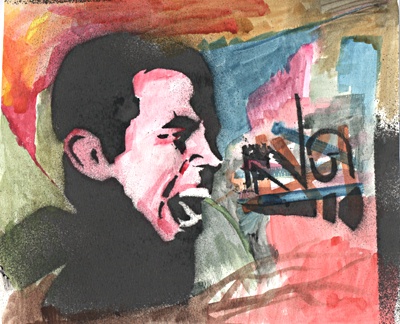All Nonfiction
- Bullying
- Books
- Academic
- Author Interviews
- Celebrity interviews
- College Articles
- College Essays
- Educator of the Year
- Heroes
- Interviews
- Memoir
- Personal Experience
- Sports
- Travel & Culture
All Opinions
- Bullying
- Current Events / Politics
- Discrimination
- Drugs / Alcohol / Smoking
- Entertainment / Celebrities
- Environment
- Love / Relationships
- Movies / Music / TV
- Pop Culture / Trends
- School / College
- Social Issues / Civics
- Spirituality / Religion
- Sports / Hobbies
All Hot Topics
- Bullying
- Community Service
- Environment
- Health
- Letters to the Editor
- Pride & Prejudice
- What Matters
- Back
Summer Guide
- Program Links
- Program Reviews
- Back
College Guide
- College Links
- College Reviews
- College Essays
- College Articles
- Back
Juveniles & the Death Penalty MAG
It's a fact that 19 states permit the execution of teenagers, and since 1973, have sentenced 226 juveniles to death. More than 20 of them have been put to death, and 82 remain on death row1. These statistics are startling. With the questionable culpability, the effects of neglect and abuse, and international opinion, juveniles should not be punished with the death penalty.
While adolescents should be held responsible for their actions, many studies question their legal culpability. Many experts agree that violent tendencies among youth stem from psychological imbalances. For example, according to the Harvard Medical School, the National Institute of Mental Health and UCLA's Department of Neurosci-ence, the areas of the brain that regulate impulse control and judgment are not fully developed until the age of 201. Between the ages of 10 and 20, humans have the ability to decipher between right and wrong. In many cases, however, most are not entirely aware of the significance of their actions.
As we are aware, it is cruel and unusual punishment to execute a mentally retarded person2. A similar concern is present regarding the ethics of condemning an immature juvenile to death.
Other studies have shown that the abuse and neglect adolescents experienced as children can create aggressive behavior. It is common knowledge that growing up in conditions that adversely affect children's emotional and physical growth can convince them that violence is acceptable. Therefore, it is unjust to hold those children completely at fault.
Sure, they are responsible for their actions to a certain extent, but other factors including parental influence and the entertainment industry may also be liable for violent behavior. In fact, it has been proven that the rate at which children mature can be extremely slowed not only by enduring abuse or neglect but by living in environments where they are present.
It is amazing to view the statistics and realize the upbringing of most of the juvenile offenders3. They often feel the need to defend themselves. While those brought up "properly" will be able to think through problems logically, those who are less fortunate will rely on the only thing they know: violence. It is safe to assume that if a serious mistake has been made, the law must punish minors. The penalty, however, should not include death.
Beyond that, executing minors violates international treaties which recognize that society should not execute people with an underdeveloped sense of the consequences of their actions4.
During the past decade, the United States has executed more juveniles than any other nation in the world. Of the 123 countries with the death penalty, only the U.S. and Iran impose it on juveniles1. Since America knows more about the workings of the brain and the effects a violent childhood can have on an adolescent, the U.S. should not implement the death penalty when it violates treaties we have ratified.
The United States of America is obligated to bring justice to these adolescents, adolescents who are not capable of voting, driving, or, in some cases, even working. "In 1988, the United States Supreme Court ruled that children under the age of 16 could not be put to death"2. This justice should not be based solely on the crime committed, but on motivation behind the offense and the child's environment.
Adolescents who commit murder should suffer consequences since they are old enough to know right from wrong. Most, however, are unable to understand the total repercussions of their acts on themselves or their victims. Real justice is not a life for "a life," especially a life that has just begun.
1Juveniles & the Death Penalty. ACLU.org
2Axtman, Kris. Christian Science Monitor
3Nat'l Coalition to Abolish the Death Penalty
4Welch, Emma. NY Times Up Front


0 articles 0 photos 12292 comments